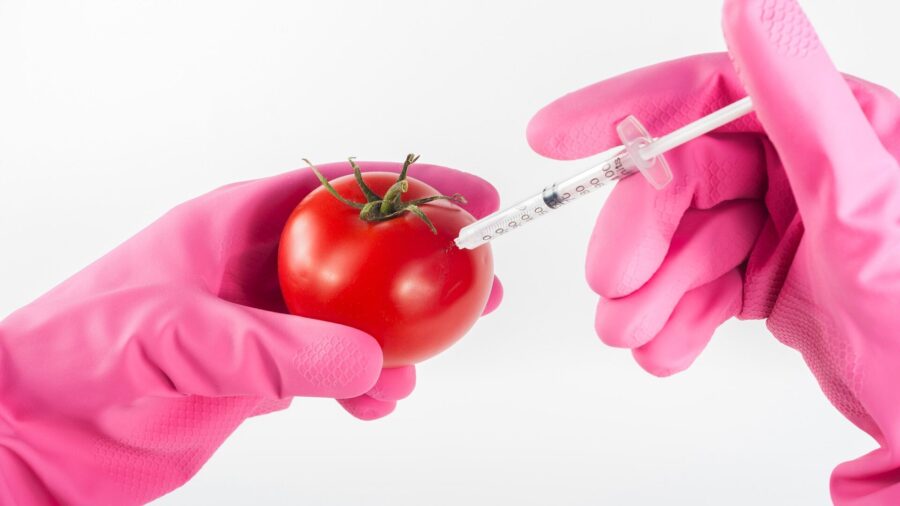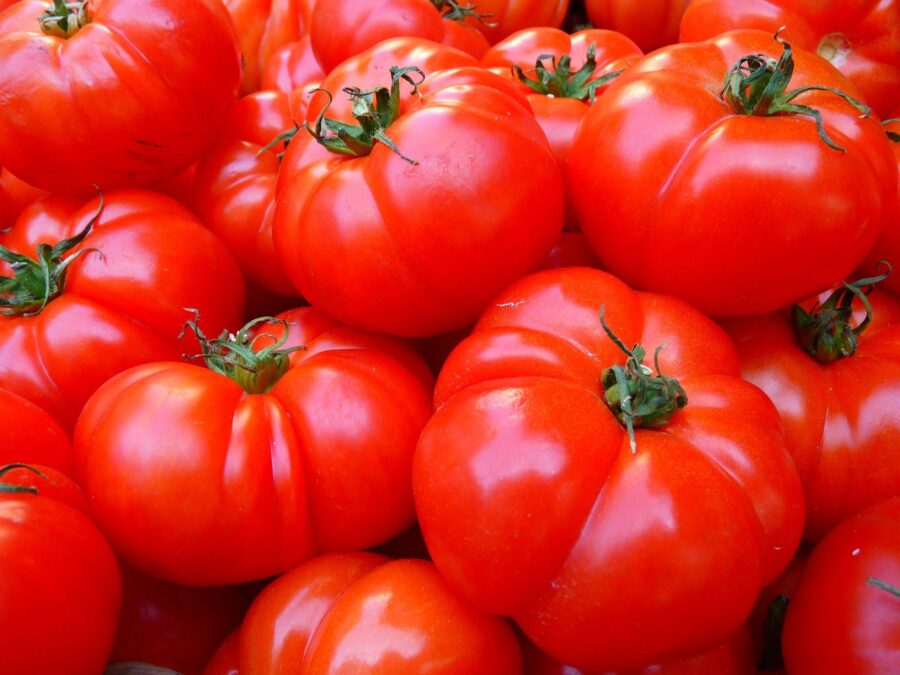A Gene-Edited Tomato In Your Grocery Store Contains Psychedelic Drugs?
Are the tomatoes you buy giving you more of a party than you expected?
This article is more than 2 years old

Scientists have been experimenting with a psychedelic tomato that’s already made its way to being commercially available in some parts of Japan and may very well make its way to the United States sometime soon. It’s worth mentioning at the top that, when referencing a psychedelic tomato, many may think that means that there exists a tomato that has similar psychedelic qualities to, say, magic mushrooms, which have been known to help many a college student chill out and be significantly better or worse at the guitar.
That’s not the case with these psychedelic tomatoes, which Tokyo-based company Sanatech Seed claims will merely help with low blood pressure and promote relaxation among its users. According to Scientific American, the company has manufactured genetically edited tomatoes that contain high amounts of γ-aminobutyric acid (GABA).
This is where there’s a bit of a cultural difference at play. In Japan, GABA is popular with the public, who often ingest it the way Americans will take vitamins. The outlet reports there are roughly 400 GABA-enriched food and beverage products on the market in the country right now. What makes the psychedelic tomato a breakthrough is its genetic editing and growth.
So, while experts agree that GABA-enriched things such as this psychedelic tomato can indeed have anti-seizure and anti-anxiety traits, it’s not exactly going to be a replacement for magic mushrooms. In fact, there’s some debate on whether or not the traits that GABA-enriched foods boast are even possible through oral ingestion as it may not be able to cross the blood-brain barrier. However, Sanatech cites some promising research that claims it does.

Meanwhile, as Japan becomes cooler and cooler with things like psychedelic tomatoes being commercially available to sell and grow, the United States isn’t exactly dragging its feet on adopting the CRISPR–Cas9 technology that’s made it happen. According to Nature.com, the U.S. Department of Agriculture is not standing in the way of CRISPR–Cas9 technology from being used in the country. It argues that its traits make it fall outside of that government body’s purview. While the GABA-enriched foods aren’t yet on the menu for farmers and food sellers in the United States, the U.S. Department of Agriculture getting out of the way is a big step that experts believe will shave roughly six years and $30-$50 million off the time it would take other drugs or genetic supplements in food to hit store shelves.
So, while you can’t go out now and get yourself a psychedelic tomato to relieve anxiety, stress and lower your blood pressure if you don’t live in Japan, those in the United States may be closer than anyone else to do so in the coming years. Meanwhile, as scientists continue to work to settle the debate on whether or not these products work on the brain the way that the company behind the psychedelic tomatoes claims, people all over the world can continue to look at this as one more good reason to start loving salads.












